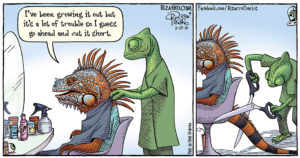 I like sayings that are efficient compressions of information.
I like sayings that are efficient compressions of information.
Latin words, jargon, poetry, or stories in their ancient wordings are often unclear and confusing. Most of the time those forms of communication are used to impress, not for communicating more clearly.
This made me think about the dating app Tinder where most initial decisions are based only on the first photo that pops up. After that initial gut level selection then there’s the written bit. Are those profiles brief, clear, and appealing or a potential partner?
No slack is cut for poor communication.
I’m not on Tinder so I Googled samples of Tinder profiles. Some were surprisingly funny. Here’re some of the funnier ones:
I’m the kinda girl you can take home to your family. I’ll then get closer to them than you are and we’ll slowly phase you out.
A threesome? No way, if I want to disappoint two people in the same room, I’ll just have dinner with my parents.
Two reasons to date me: One, because you’d be the good looking one; and two, Please!
I work most nights fighting crime. I’m not saying I’m Batman, but I am saying no one has seen the Joker in around here.
I like long walks on the beach with my girlfriend. At least until the LSD wears off and I realize I’m just dragging a stolen mannequin around a Wendy’s parking lot.
All men are pigs and I’m in the mood for bacon.
I once rescued a fireman from a burning building.
I don’t have Ebola.
Let’s be honest I’m on Tinder and my first picture is of me in a bikini – I’m not looking for a relationship or a friend.
Let me meet your mom. She’ll think I’m charming, super funny, and kinda sexy all at the same time; and she’ll fall in love with me. We’ll get married. I’m your dad now, and you’re in trouble ’cause you’re on Tinder.






